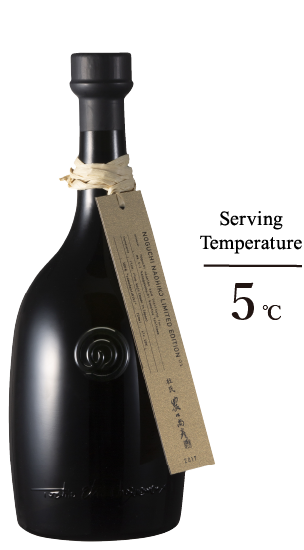
Rising Chef, Ryohei Hieda, who ventured to Taiwan,
and Chang Hung Liang, decorated winner of
the World Kikisake-shi Competition,
create new possibilities for local Komatsu ingredients.
-
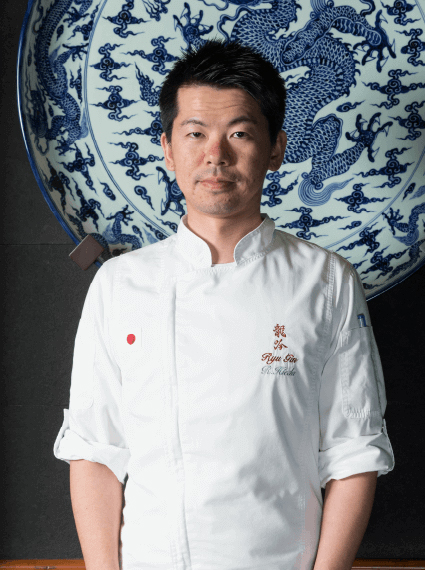
Shoun RyuGin / ChefRyohei Hieda
Born in Nagasaki in 1981. He began his training at the age of 19 and entered the kitchen of Kyoto’s famous “Gion Kappo Nakagawa” and acquired the fundamental knowledge and techniques of traditional Japanese cuisine. In 2008, he joined the Michelin, 3-star restaurant Japanese Cuisine “RyuGin”, studying under Chef Seiji Yamamoto.
He was moved by Chef Yamamoto’s creations, and philosophy of Japanese Cuisine. In 2013, to further his knowledge and skills, he moved to San Francisco to train at the three-star French restaurants “Benu” and “Manresa”. In 2014, after returning to Japan, he was appointed as the head chef of “Shoun RyuGin”, which opened in Taiwan. After taking office, he traveled all over Taiwan and built personal relationships with local small farmers, fishermen, and breweries, and has earned high praise for his unique Japanese cuisine, all made with excellent Taiwanese ingredients.
Hieda earned a spot on Asia’s Best 50 Restaurants List and earned two Michelin stars for two consecutive years. Also holding the No.1 spot for restaurants in Taiwan on “La Liste 2019”. -
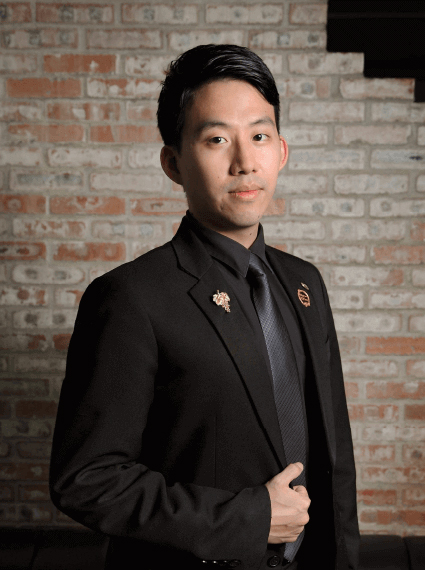
Shoun RyuGin / Assistant Manager, Chief SommelierChang Hung Liang
Graduating from the Hospitality Management department of National Taiwan Normal University, he has experience working in many high-class Japanese cuisine restaurants and has a wealth of knowledge about Nihonshu as well as wine and beer. A frequent contributor to magazine articles on wine and Nihonshu, Chang is highly qualified as a sommelier and Kikisake-shi and is the champion of the 5th World Kikisake-shi Master Competition, winning out of 329 competitors (224 Japanese and 105 foreigner) and also winning first place in the “Beverage Service Division”. He is currently working as the Deputy Manager and Chief Sommelier at Shoun RyuGin in Taiwan.
Chef’s
thoughts on
this Pairing
“I felt that Noguchi’s sake would be more suitable for dishes that combined sourness and sweetness, such as ethnic, French, and Italian cuisine, rather than authentic Japanese cuisine.”
~Chef Hieda.
The chef will try to bring richness and accents to the dish, by actively including oils and spices consciously. Serving innovative dishes, that are produced with local ingredients of Komatsu City, mixed with the elements of Taiwan, based on Japanese cuisine.
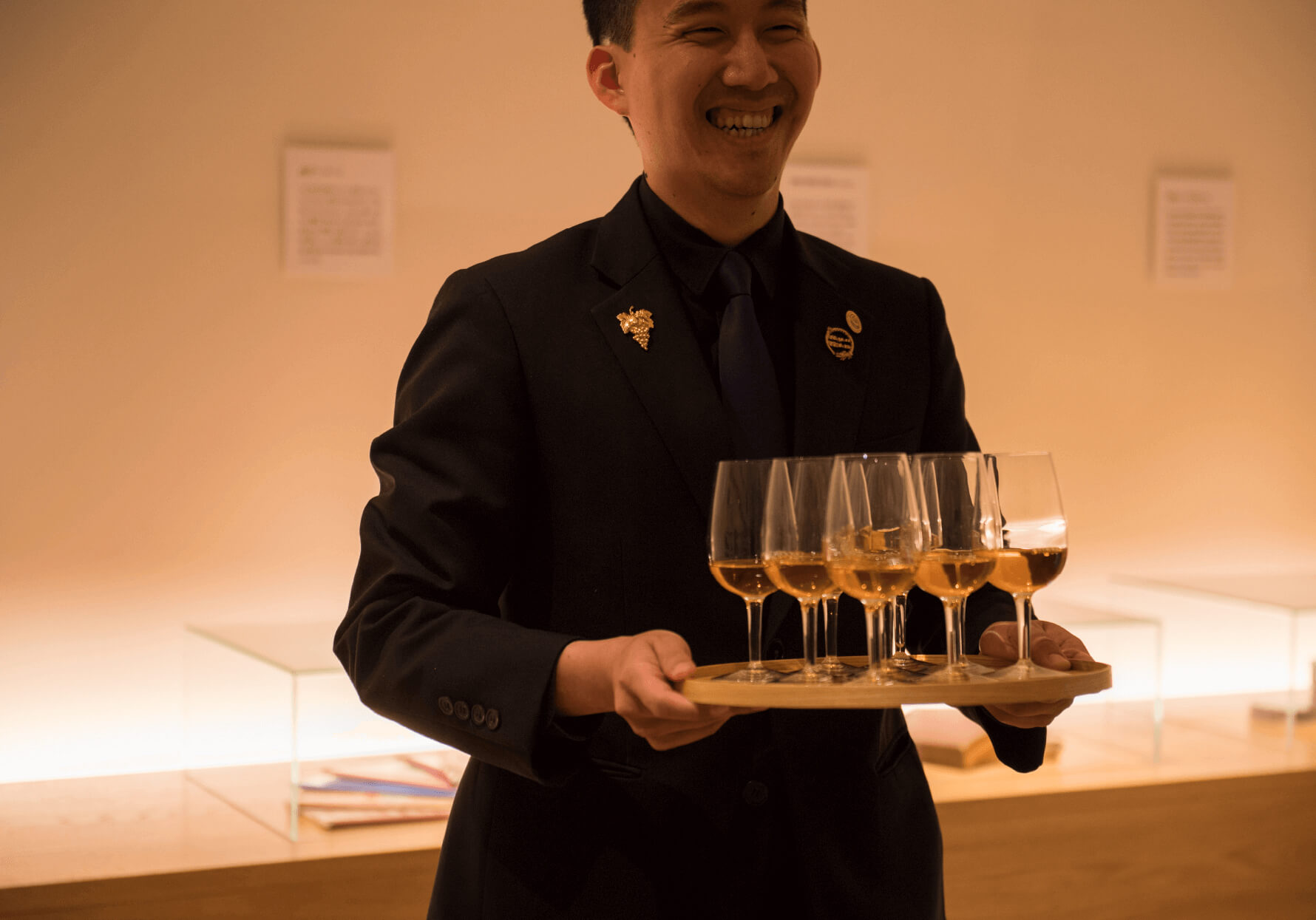
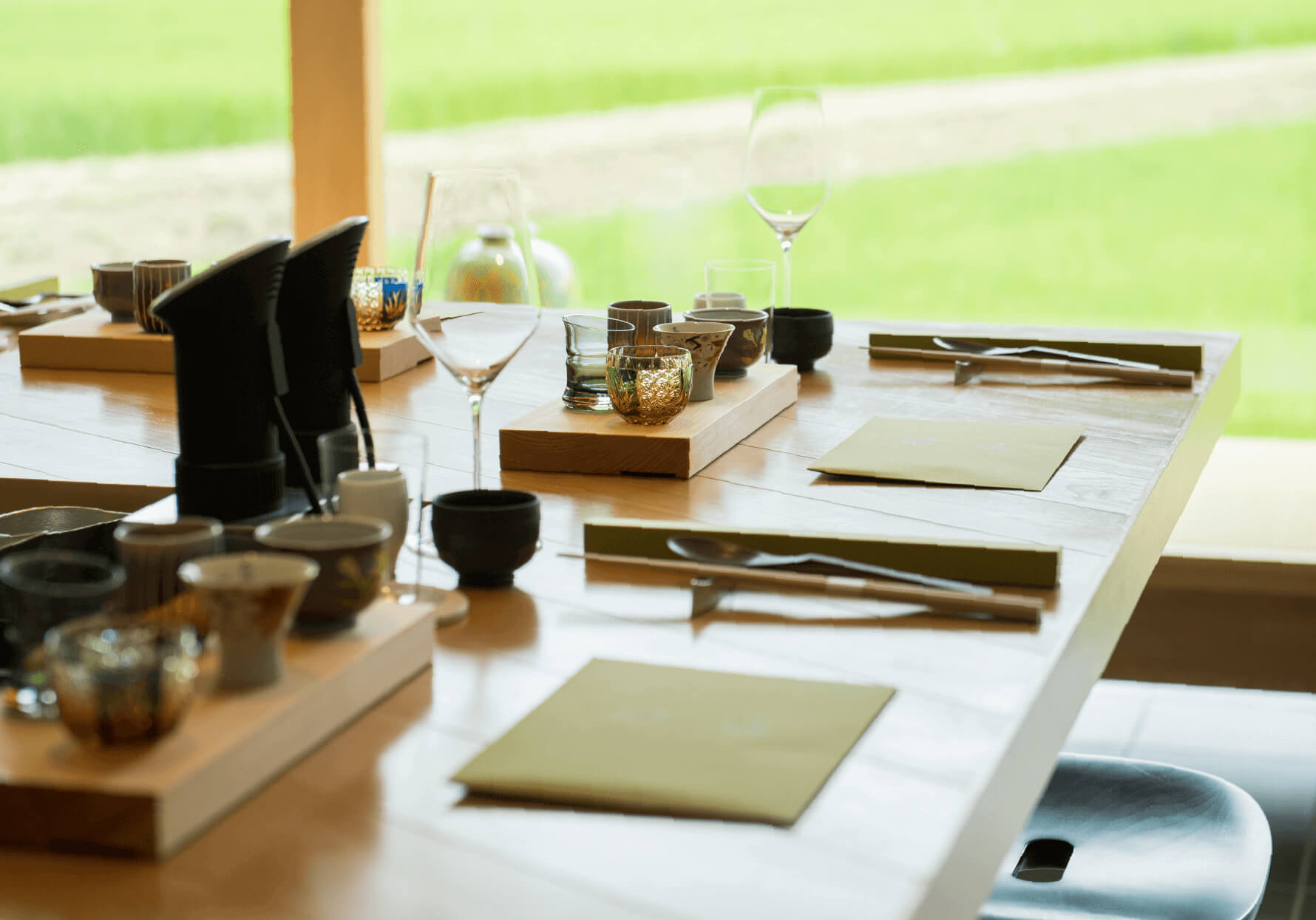
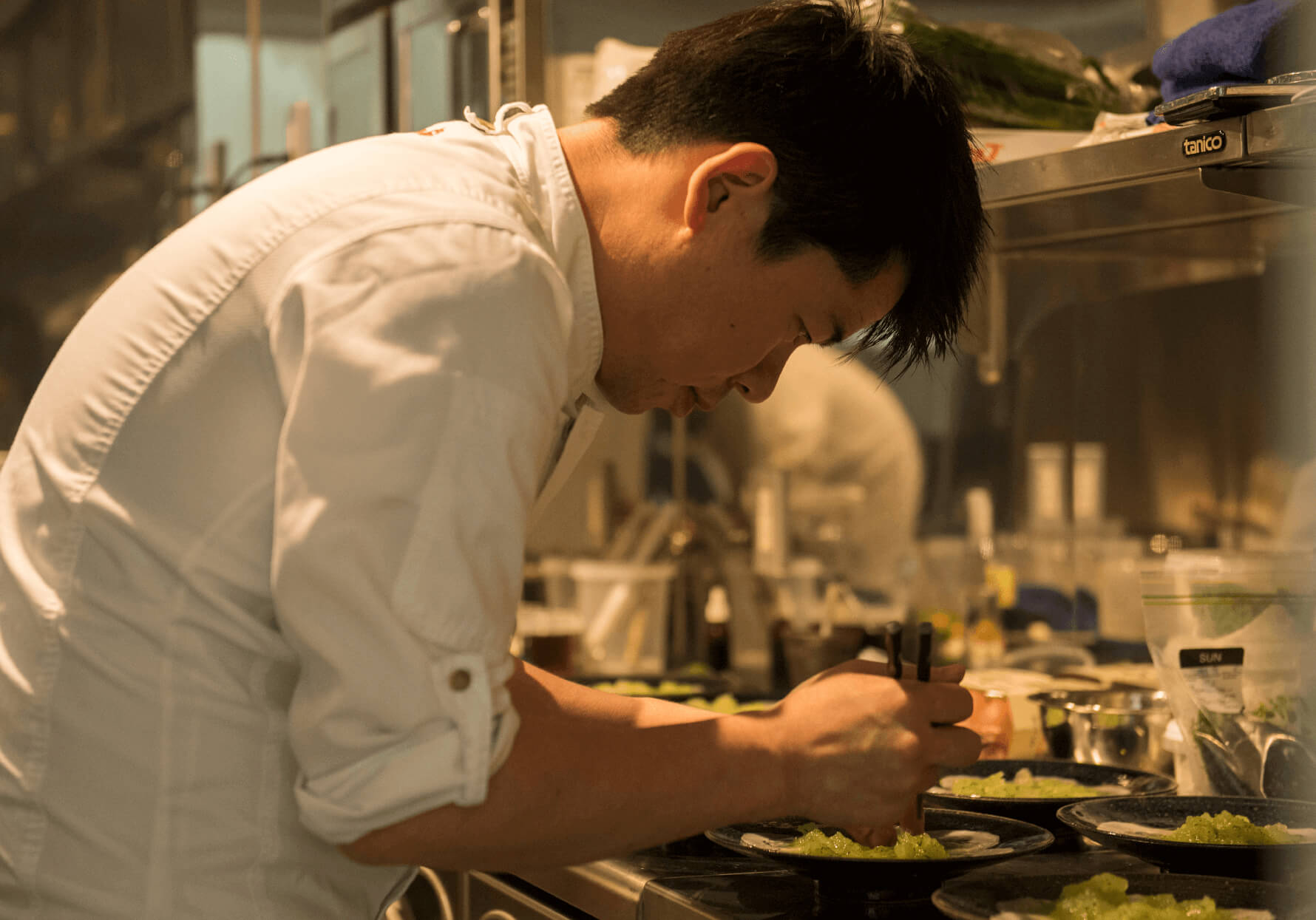
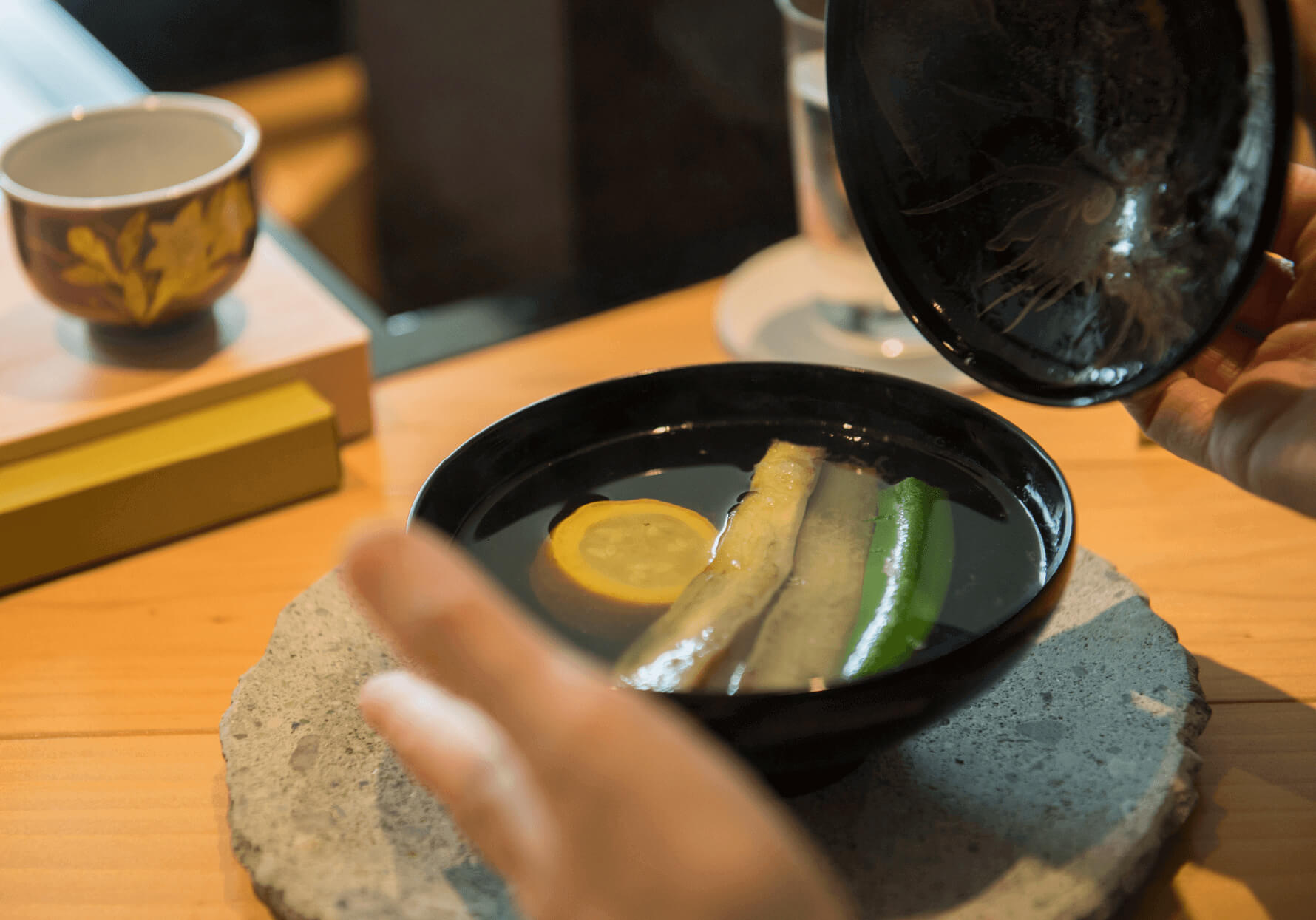
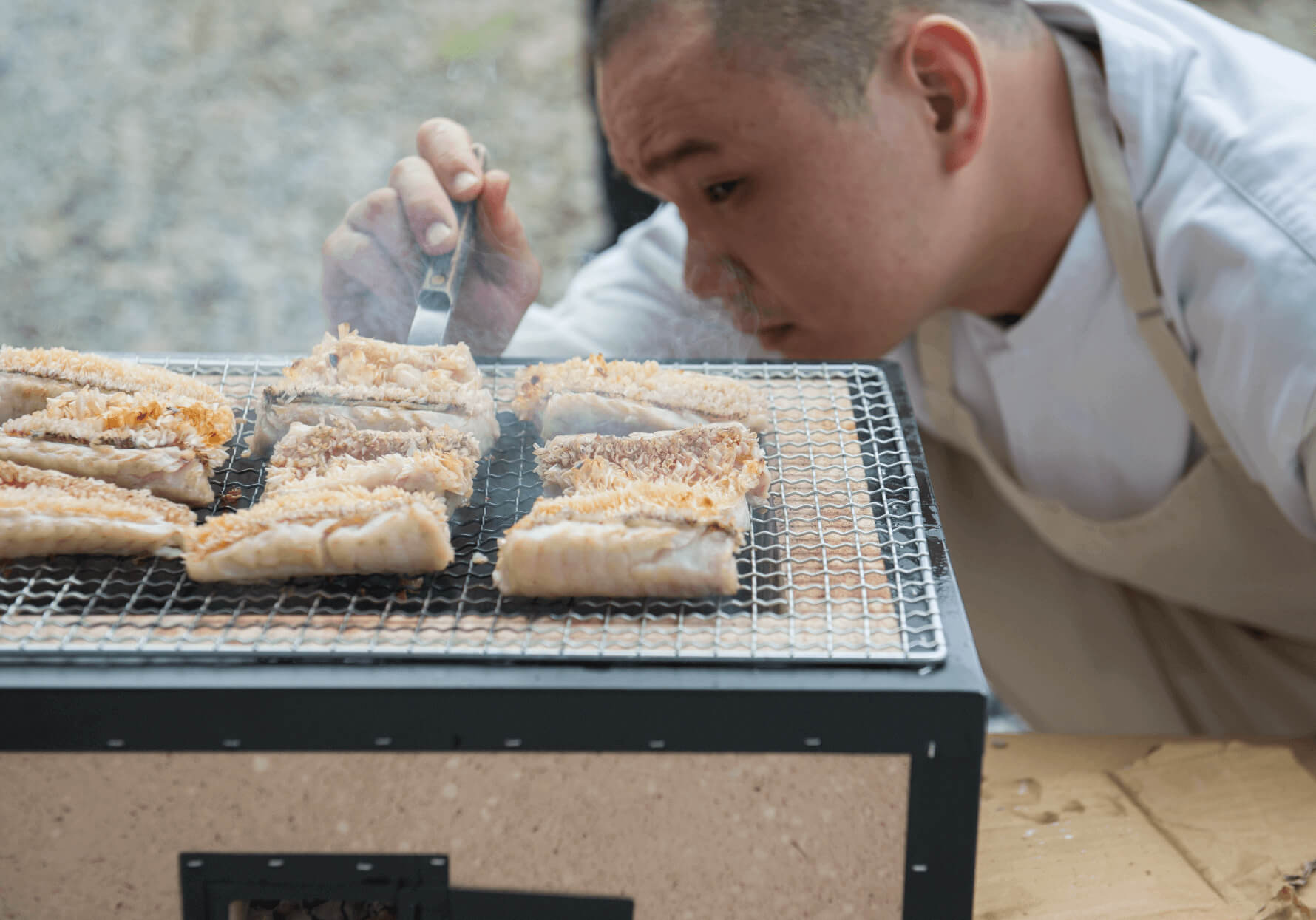
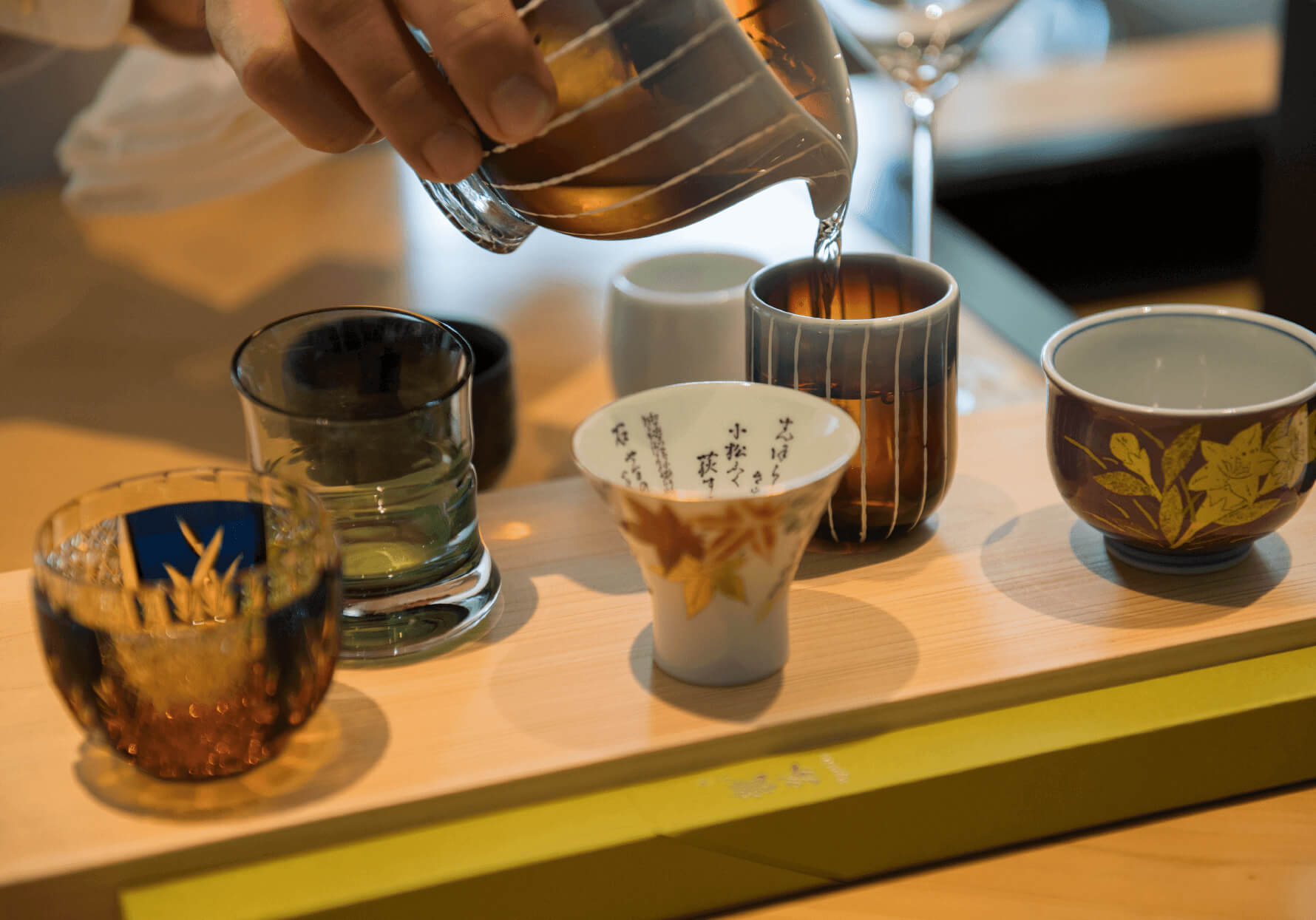
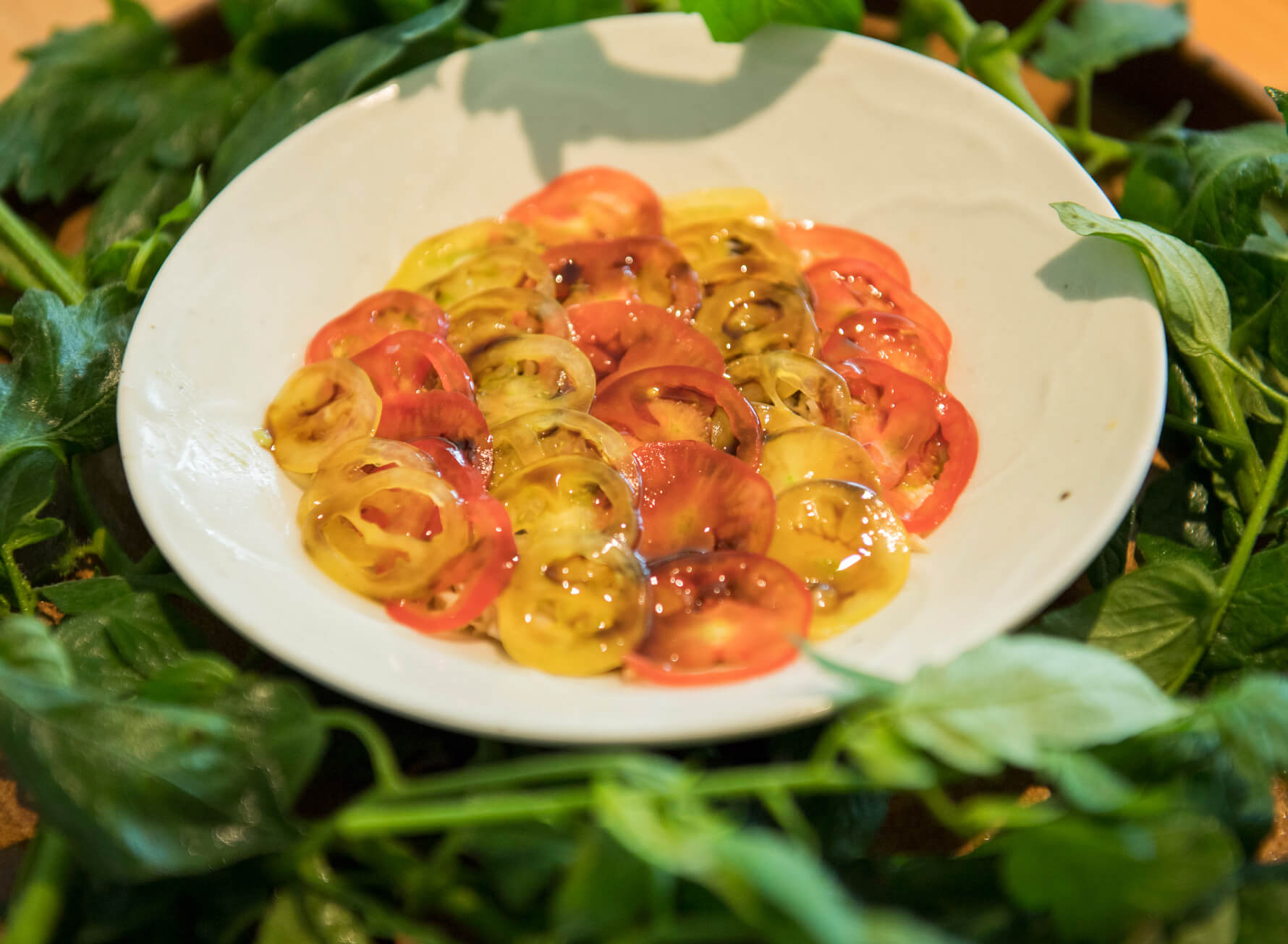
YAMAHAI AIYAMA,
Unfiltered, Unpasteurized, Undiluted Sake 2018Cherry Tomato
Horsehair Crab with
Chilled Brown Sugar and Black Vinegar
The dish is made with steamed eggs, horsehair crab meat, and avocado spread under the cherry tomatoes, giving it different kinds of textures in four layers.
The tomato leaves which decorate the plate were harvested at Nishita Farm from that morning.
A gorgeous scent spreads from the Taiwanese black vinegar sauce to complete the dish.
Paired with “YAMAHAI AIYAMA Unfiltered, Unpasteurized, Undiluted Sake 2018,” which has the flavor of condensed rice umami.
The dish, with the creamy taste of eggs and crab meat and the sourness of black vinegar and tomatoes, balances well with the sake, Sweetness is increased by serving chilled to 12℃.

YAMAHAI AIYAMA,
Unfiltered, Unpasteurized, Undiluted Sake 2018
The Aiyama rice has a larger size and also is more soluble, enhancing the umami even if it is highly polished, maximizing the clarity of the umami.
It features an elegant harmony of sweet and sour aroma reminiscent of strawberries, with fresh and beautiful umami, and the crisp yogurt like gentle acidity.
YAMAHAI AIYAMA is a luxurious mid-course sake that can be used for a variety of dishes, western or Japanese.
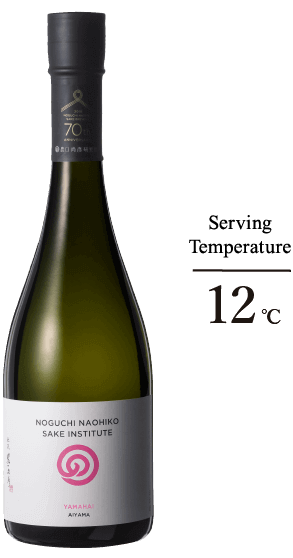
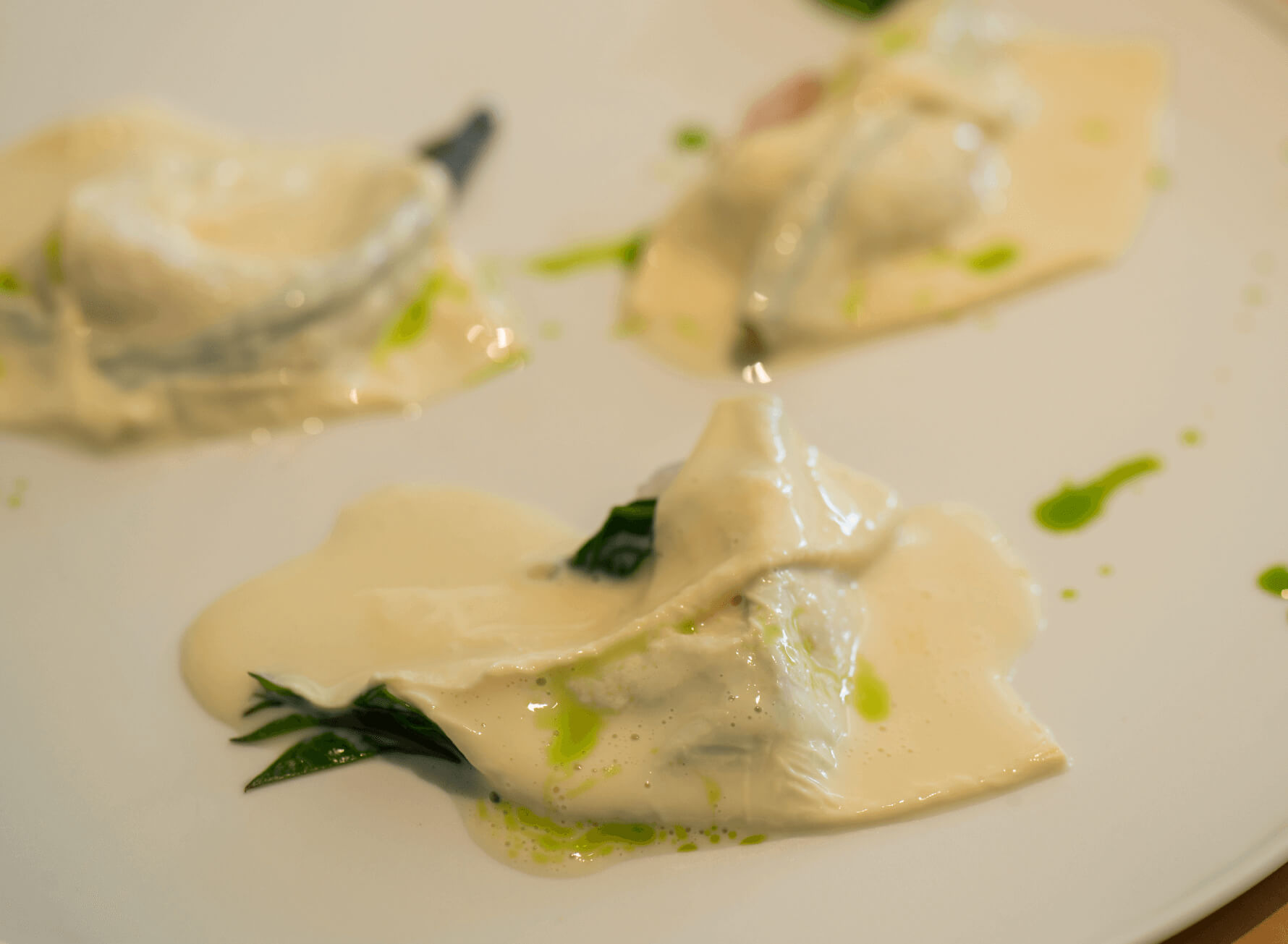
YAMAHAI MIYAMANISHIKI,
Unfiltered, Unpasteurized, Undiluted Sake 2018Sweet Shrimp, Yuba and Malabar Spinach
The rich and sweet flavor of the sweet shrimp is enhanced after being seasoned with Shaoxing wine broth.
The sweet shrimp and Malabar spinach are wrapped in yuba (tofu skin) and served with sauce made from Taiwanese basil.
Paired with YAMAHAI MIYAMANISHIKI Unfiltered, Unpasteurized, Undiluted Sake 2018, which features a refreshing taste, it enhances the herb-like flavor; creating a fine balance with the bitterness of Malabar spinach and the sweet aroma of basil.

YAMAHAI MIYAMANISHIKI 2018,
Unfiltered, Unpasteurized, Undiluted SAKE
“MIYAMANISHIKI” has distinctive flavor, like a botanical herb.
It represents a special harmony with acidic taste of typical Yamahai brewing, with slightly umami flavor coming from the high degree rice polishing.
It features a fruity aroma, with a scent of natural mountains, and refreshing acidity maximizes a crisp, clean finish.
MIYAMANISHIKI is truly a sumptuous sake that could be paired with a variety of dishes, Western or Japanese.
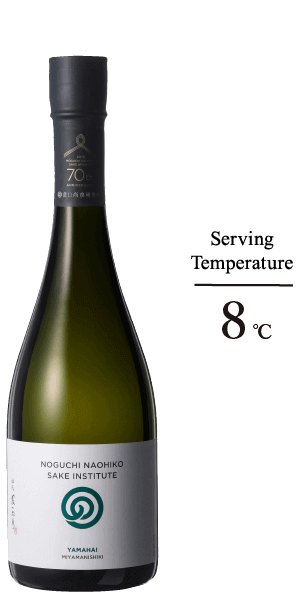
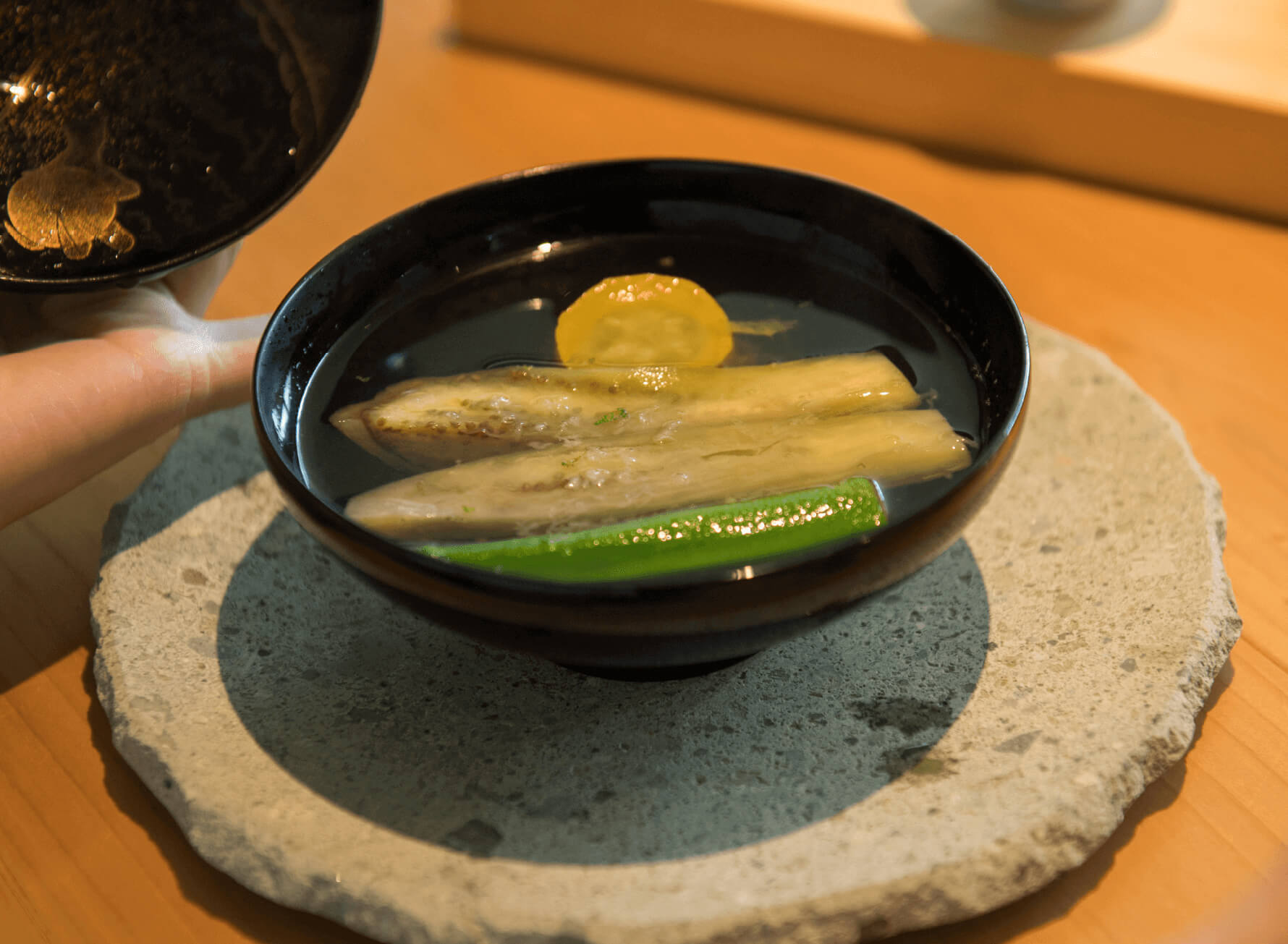
DAIGINJO,
Unfiltered, Unpasteurized, Undiluted Sake 2018Clear Broth Soup,
with Summer Vegetables produced by Nishita Farm
A soup condensed with the umami of chicken and dried scallops, using mashing water that is used by the sake itself.
The soup contains freshly produced summer vegetables such as eggplant, zucchini, and okra.
The vegetables used are grown at Nishita Farm located near the brewery, which were grown from the same water source as the mashing water used for the sake.
Paired with DAIJINJO Unfiltered, Unpasteurized, Undiluted Sake 2018, which has a firm umami.
A pairing that intertwines the flavor of the refreshing soup, and the umami taste of the sake.
“DAIGINJO has a long, lingering finish and moves almost in slow motion on the tongue. Therefore, I choose the chicken-based broth that has a longer lingering finish than the broth of bonito flakes.
To spread out the various flavors, I prefer serving DAIGINJO at 14℃.
I would like you to experience the feeling of combining DAIGINJO and the soup flickering in your mouth.” ~Sommelier Chang

DAIGINJO,
Unfiltered, Unpasteurized, Undiluted Sake 2018
It has a nobleness fragrance like sour fruit such as lychee, papaya, and pineapple, that is refreshing and graceful.
It features a crystal-like transparency, elegant acidity and a beautiful long finish.
DAIGINJO is an in-meal sake that is been highly received by the chefs who produce delicate dishes. To be enjoyed chilled.
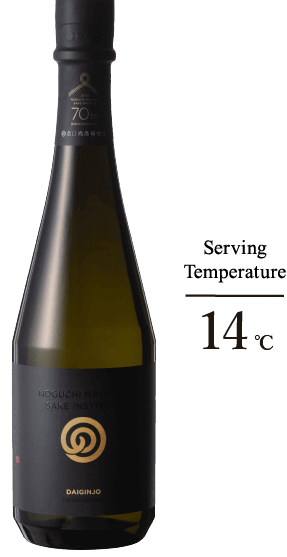
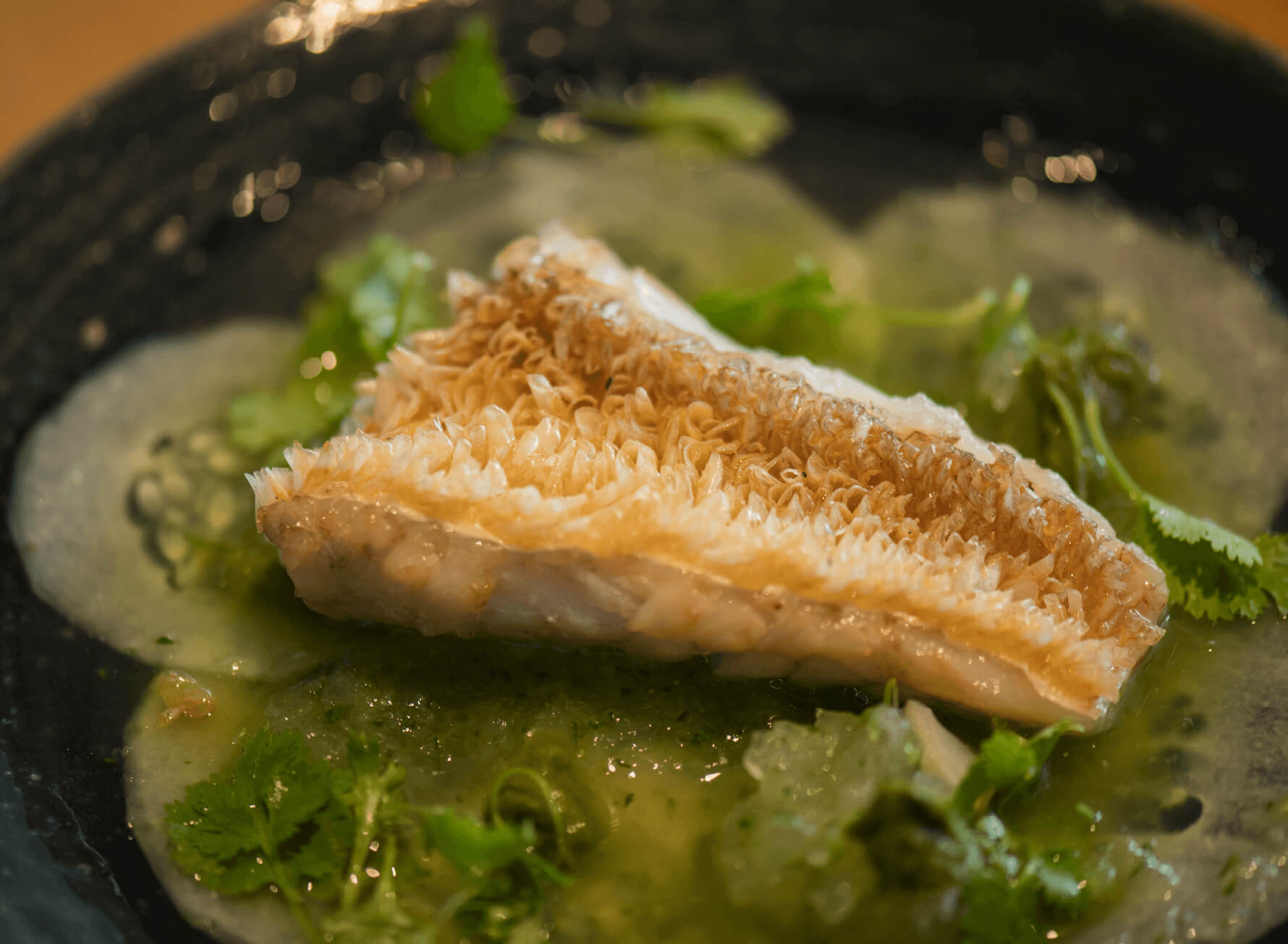
YAMAHAI GOHYAKUMANGOKU,
Unfiltered, Unpasteurized, Undiluted Sake 2018Grilled Scaled Tile Fish,
and Kaga Cucumber with Coriander
Tile fish grilled and finished with a crispy texture. Starting by wrapping the tile fish with slices of thick Kaga cucumber, a traditional Ishikawa vegetable.
Cucumber fermented with salt water and the acidity of the coriander add a nice ethnic flavor.
Paired with YAMAHAI GOHYAKUMANGOKU Unfiltered, Unpasteurized, Undiluted Sake 2018, served chilled at 4℃.
A pairing that takes advantage of the temperature difference between the sake and the food, where the freshly grilled scaled tile fish is affirmed with the sharp acidity of the chilled sake.

YAMAHAI GOHYAKUMANGOKU 2018,
Unfiltered, Unpasteurized, Undiluted SAKE
“GOHYAKUMANGOKU” is a rich sake, made by low polished rice which maximizes umami.
It features a sweet and sour citrus scent like orange peels, a creamy richness, and gentle acidity.
In contrast to its complexity and profound taste, it cleanses your mouth of the fat from the dish, leaving a crisp finish.
It is a sake that goes well with a main course, such as meat or eel, Japanese or western.
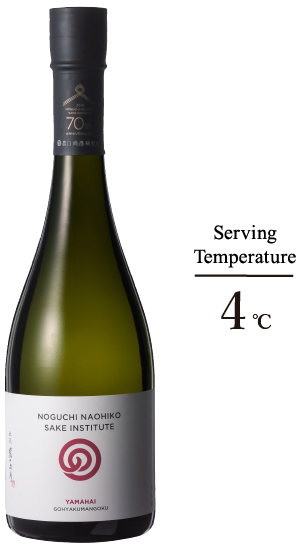
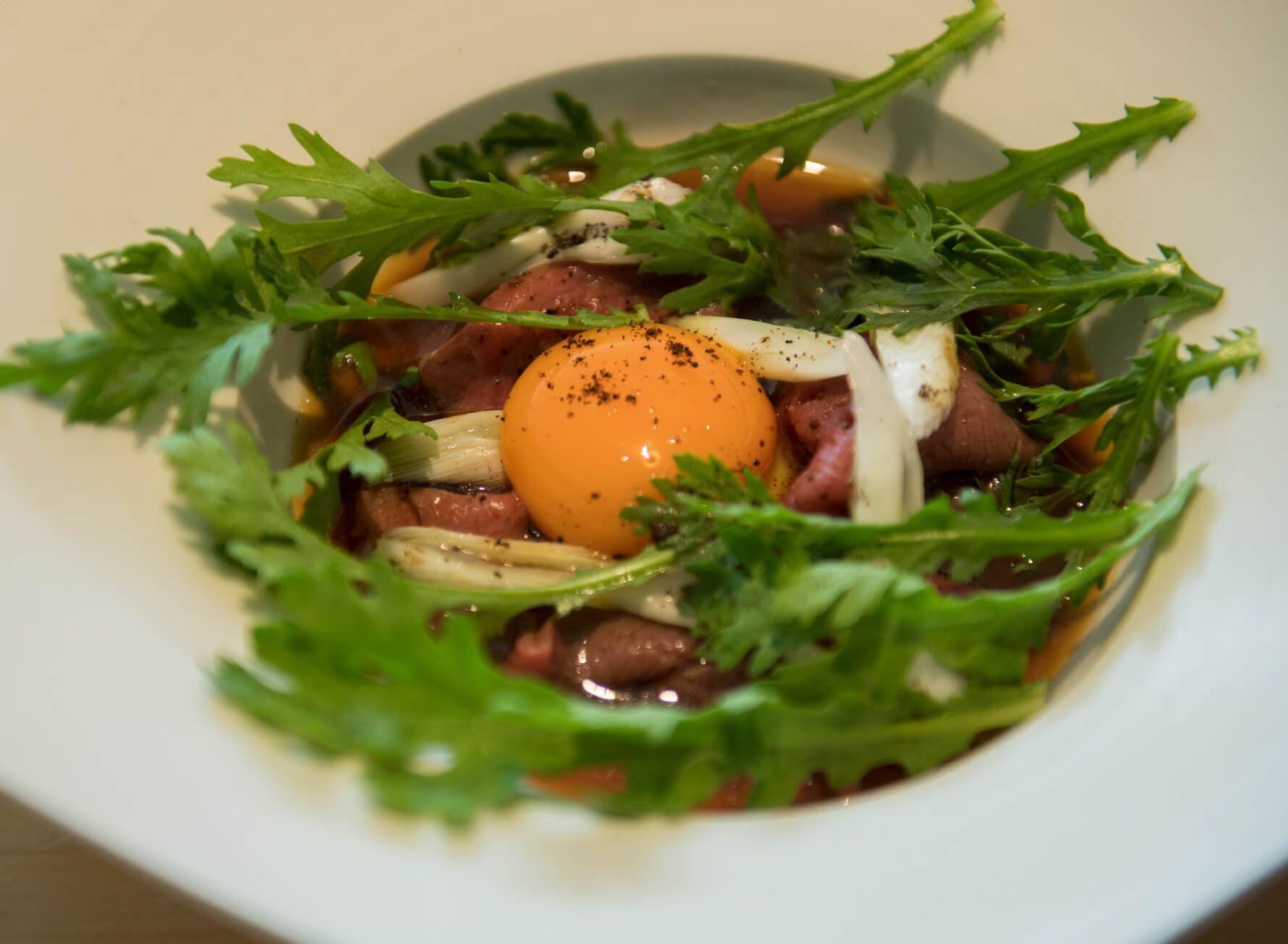
JUNMAI Unfiltered, Unpasteurized, Undiluted Sake 2018Taiwanese style Noto Beef Fillet Sukiyaki,
with Chrysanthemum Greens
Spicy Taiwanese style sukiyaki spiced with Hong Kong’s Margo mountain pepper.
Paired with JUNMAI Unfiltered, Unpasteurized, Undiluted sake 2018.
“At 30℃, which is slightly warmer than room temperature, a fruity nuance reminiscent of Mandarin oranges appears,” says Sommelier Chang.
The sake combined with both sweet and sour taste, goes well with the spice of sukiyaki.
Warm Japanese sake is exquisitely combined with the beef and warm sukiyaki stock, creating a new flavor.
A pairing that enhances the appeal of the sake which flavor significantly changes depending on its serving temperature.

JUNMAI 2018,
Unfiltered, Unpasteurized, Undiluted Sake
Only rice cultivated by farmers near the brewery is used. It is a sake that you can feel the terroir using rice that is grown from the same environments of the fresh water source and clean air.
With fragrance reminiscent of oriental flowers, this sake has a silky-smooth texture and milky richness.
It can be enjoyed with lightly seasoned western meals, such as vegetable dishes, or fish dishes.
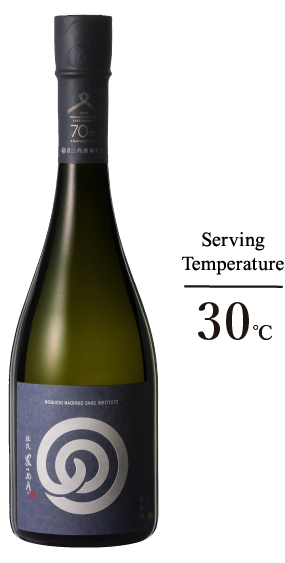
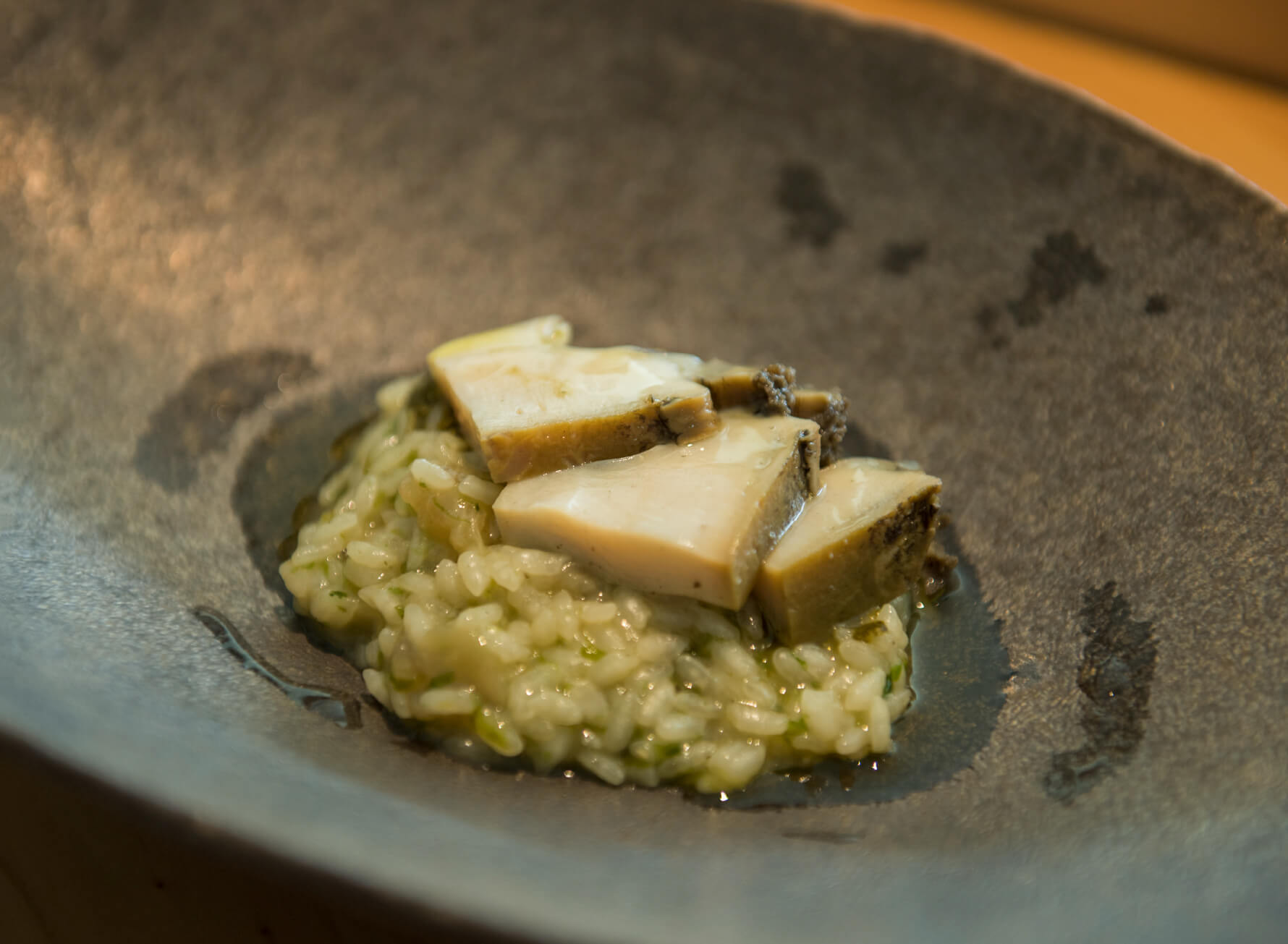
HONJOZO Unfiltered, Unpasteurized, Undiluted Sake 2018Gokokuji Farm Organic Koshihikari Rice,
with Summer Abalone and bitter Taiwan Tea oil
A dish featuring abalone cooked with radish and softened on risotto of organic rice made from the broth from the abalone, and served with sea lettuce.
Oil made from Taiwan’s bitter tea is poured on top to complete the dish.
Paired with HONJOZO Unfiltered, Unpasteurized, Undiluted Sake 2018, which is served at 20℃.
“This sake has the texture of minerals like the white wines of the Loire in France,” says Sommelier Chang.
This pairing creates a feeling of summer, with the flavor of abalone and seaweed in harmony with the mineral texture of the sake.

HONJOZO 2018,
Unfiltered, Unpasteurized, Undiluted Sake
Noguchi’s HONJOZO is a popular classic product that has been refined more many years.
It has a refreshing fruity flavor similar to pears, and exquisitely balanced with incredibly clean and refreshing mineral taste.
It is a versatile course sake that has been highly rated by sushi chefs and washoku chefs.
Enjoyable not only chilled, but can also be enjoyed at lukewarm temperatures around 40℃, featured with mild umami and less bitterness.
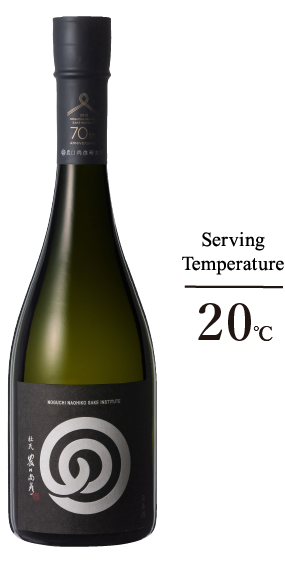
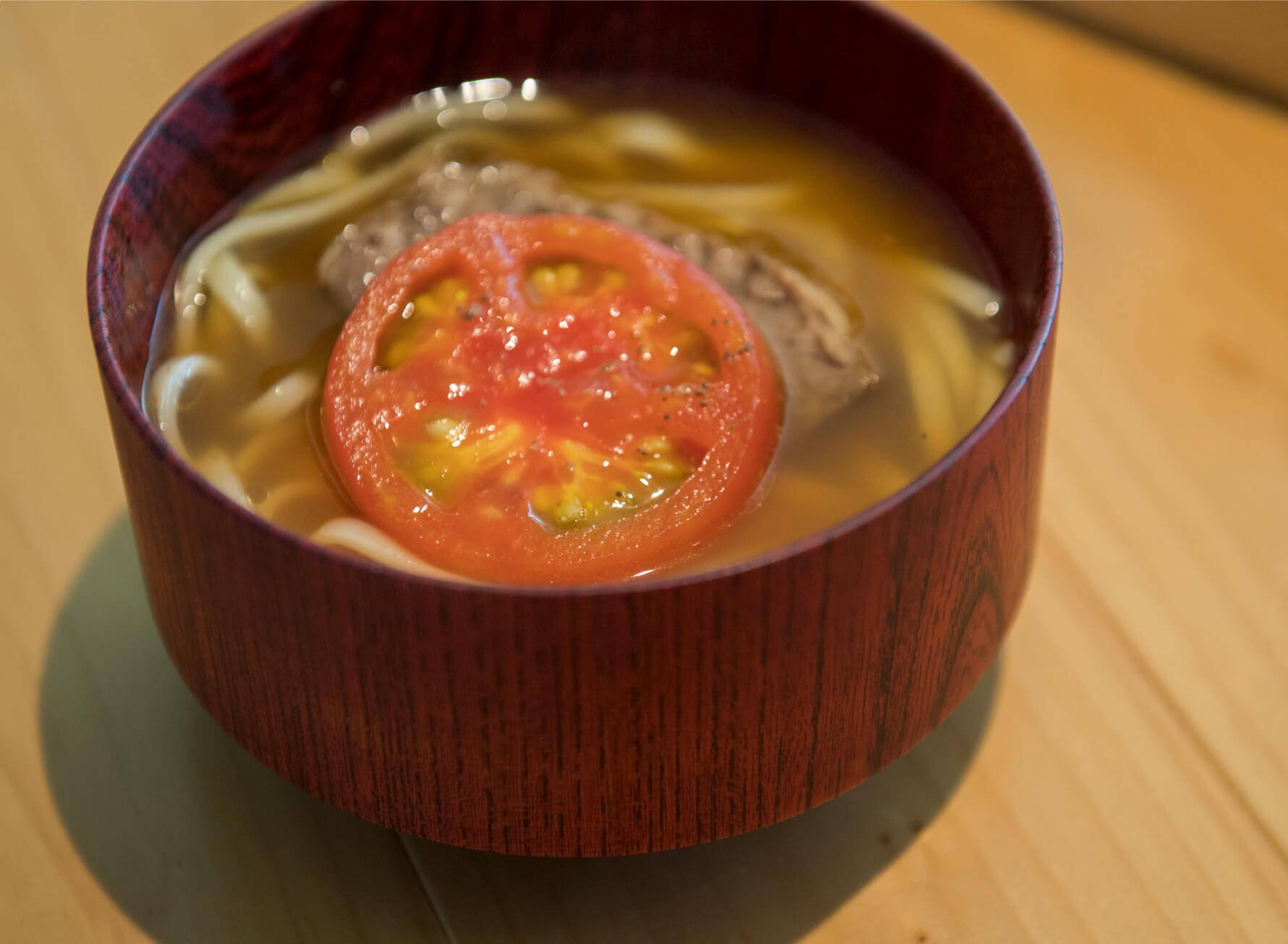
YAMAHAI JUNMAI Unfiltered, Undiluted Sake 2017Tomato Beef Noodles
This dish features Taiwan’s famous beef noodles, using Komatsu City’s famous Komatsu udon.
A spicy dish, the fruity broth is prepared by boiling tomatoes and apples harvested from Nishita Farm, along with beef bones, and spices such as Sichuan, the Chinese pepper.
For this special dish, YAMAHAI JUNMAI Unfiltered, Undiluted Sake 2017, aged for one year, is served at 35℃.
The warmed sake increases the complex aroma, and fuses with the spicy soup to create a rich flavor.

YAMAHAI JUNMAI 2017,
Unfiltered, Undiluted SAKE
First year vintage that has been aged for one year, with a matured aroma. The texture and taste reminds one of the softness and roundness of fresh cream, rich while slightly sour.
The aroma reminiscent of grains, and the mild acidity of strawberries.
In contrast to its profound taste, it leaves an exquisite finish in the throat.
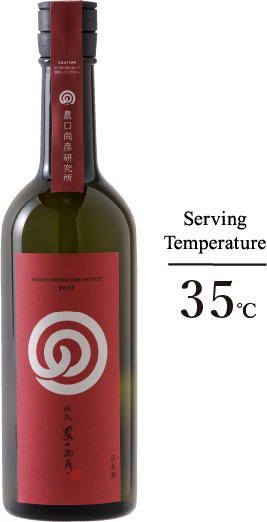
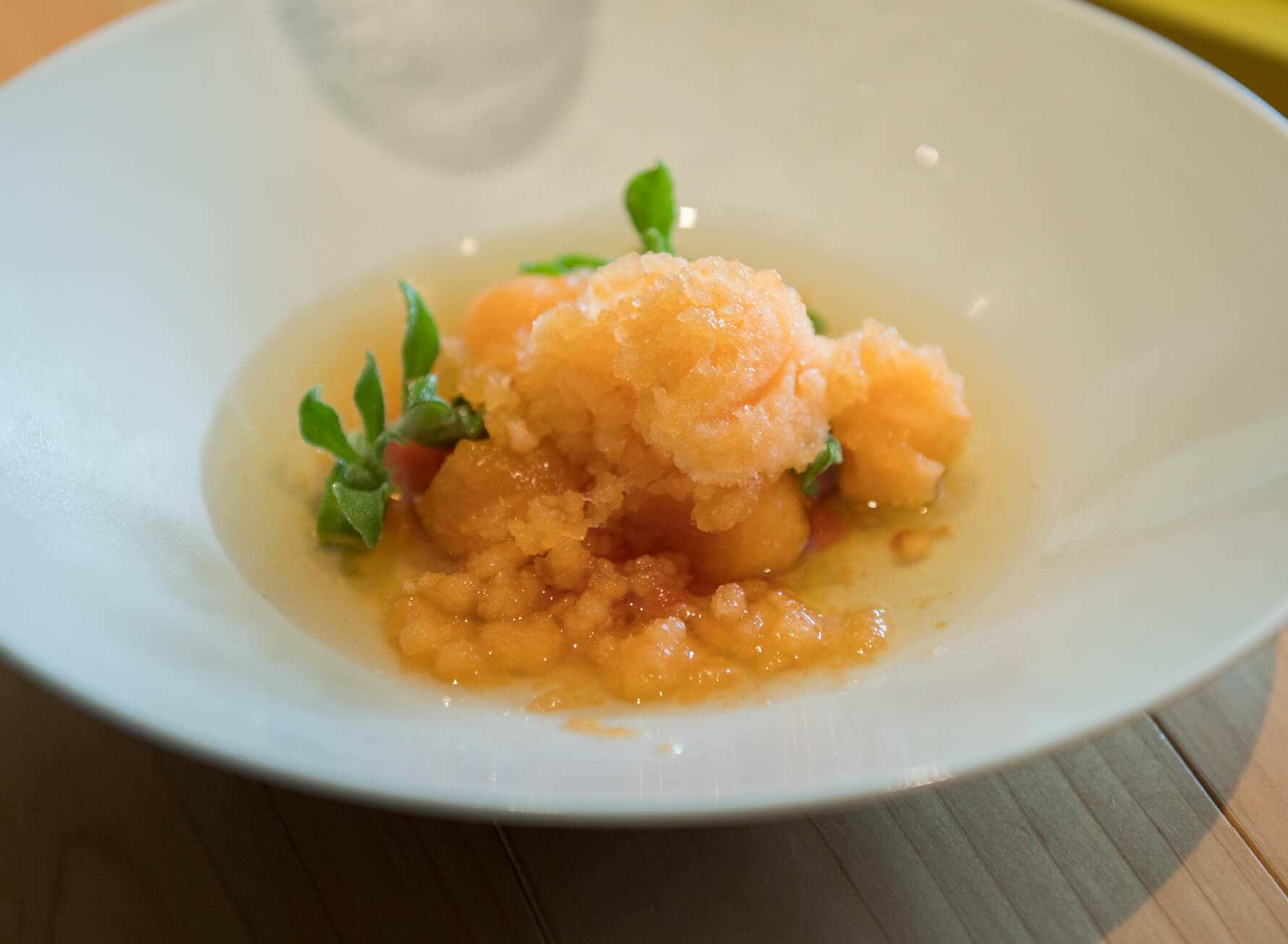
NOGUCHI NAOHIKO 01 2017Melon Marseille, Kozan Oolong Tea
Marseille melon pulp and sherbet with papaya puree, with ice crystalline served as a dessert dish.
Completed by pouring cold Kozan oolong tea, which has a melon-like scent.
Paired with “NOGUCHI NAOHIKO 1st series 2017”, which was released in the end December 2018.
This Sake is stored at a low temperature for about one year and features a fruity flavor with robust sweetness.
This pairing gives off a scent of tea, with a refreshing feeling, even in the deep sweetness.

NOGUCHI NAOHIKO 01 2017
The 2017 vintage brewed in the first year by Naohiko Noguchi, who is referred to as “The God of Sake Brewing”, has been completely revived.
Made with the brewing techniques of 70 years of experience.
This is the first edition of the LIMITED EDITION series, which Noguchi Naohiko himself hand picks the best out batch from the entire season.
Introduced with special aging techniques and management for over a year.
It features a fresh and sweet fragrance like lychee and papaya; plumped umami condensed by aging with elegant acidity; and a long lingering finish.
